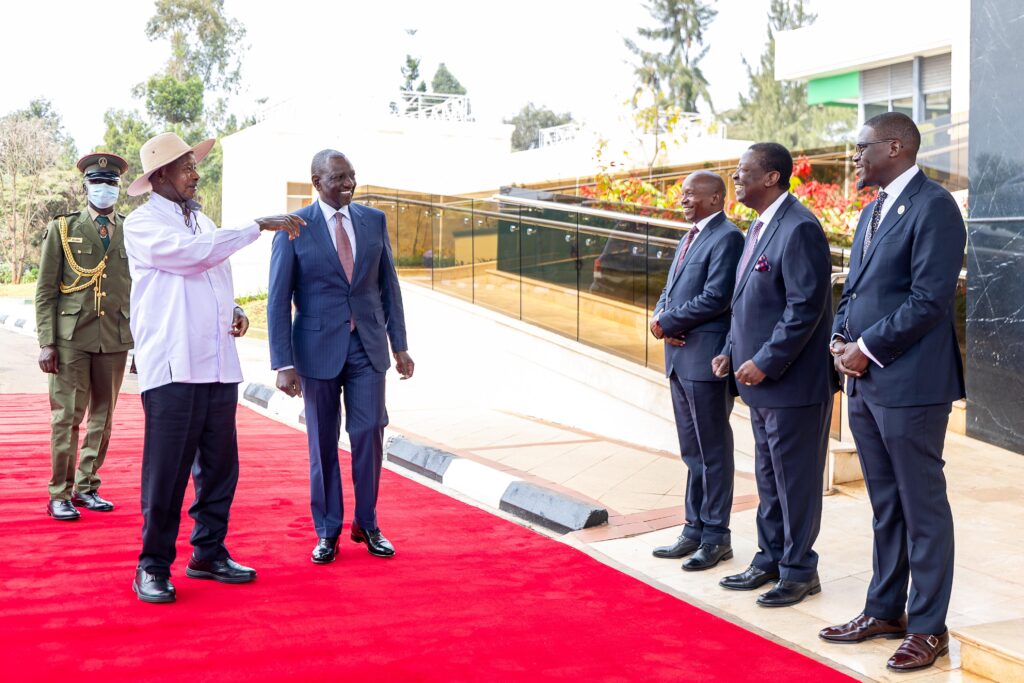Ugandan President Yoweri Museveni maintained a notable physical distance during his official visit to Nairobi on Tuesday, avoiding handshakes with Kenyan leaders, including Deputy President Rigathi Gachagua, Prime Cabinet Secretary Musalia Mudavadi, and Nairobi Governor Johnson Sakaja.
President Museveni, who was in Kenya for a state visit to enhance bilateral relations, was warmly welcomed at State House by President William Ruto. While Ruto extended a handshake, which Museveni accepted, the Ugandan leader refrained from physically greeting other senior officials present, instead opting to acknowledge them with waves and nods from a short distance.
Museveni’s cautious approach is not new. The long-serving Ugandan leader has been known to adopt strict personal health protocols, especially in public gatherings, a practice that gained prominence during the COVID-19 pandemic. His aversion to handshakes began even earlier. In 2012, during an Ebola outbreak in Uganda, he urged the public to avoid unnecessary physical contact, emphasizing that many infectious diseases are preventable through simple personal measures.
“If I don’t shake your hand, it doesn’t mean I don’t like you,” Museveni once explained, underlining that the gesture is driven by a commitment to health safety rather than social indifference.
During the coronavirus pandemic, Museveni was vocal in encouraging Ugandans to embrace contactless greetings such as waving, reinforcing his consistent stance on disease prevention through behavioral change.
After the outdoor reception, Museveni and Ruto proceeded to a closed-door meeting expected to touch on several key areas of cooperation. These include regional integration, security partnerships, infrastructure development, and boosting trade ties between the two East African nations.
Museveni’s visit comes at a time when both Kenya and Uganda are seeking to strengthen diplomatic and economic bonds under the broader framework of the East African Community (EAC). With both countries playing pivotal roles in the region, the meeting signals a renewed commitment to collaborative growth, peace, and prosperity.
While the handshake might have been skipped, the message of solidarity and partnership between the two nations was clearly conveyed.

